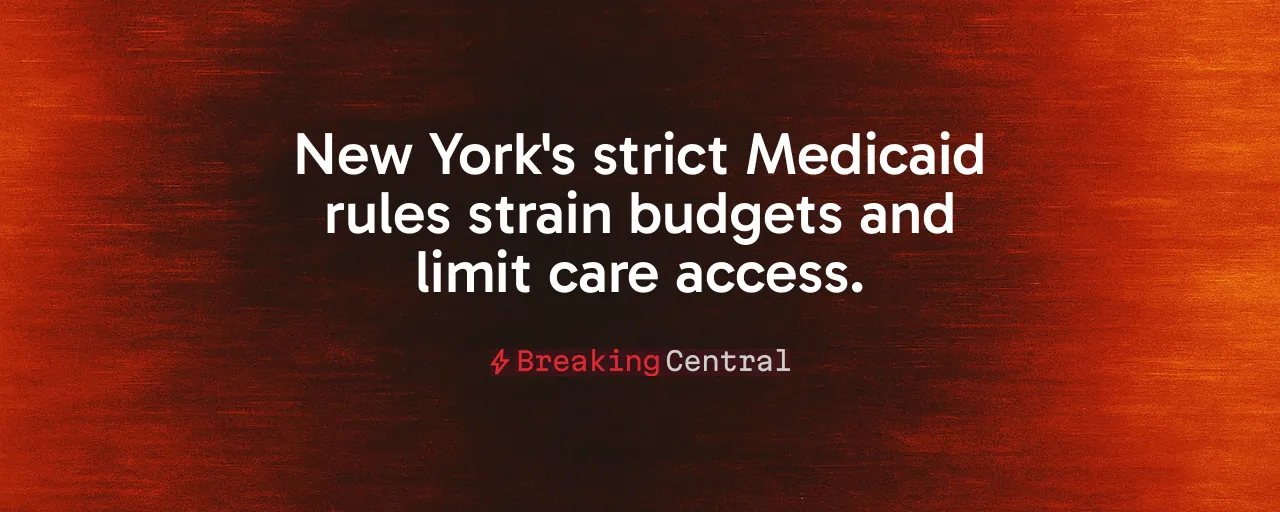A Costly Power Grab
Governor Kathy Hochul recently celebrated improved compliance among New York's Medicaid managed care plans with mental health and substance use disorder rules. This move signals a broader agenda of state control, one that places a heavy burden on taxpayers and insurers. While Hochul frames this as a win for New Yorkers, the reality is a system bogged down by regulations that fail to address the core challenges of mental health care access.
The state's Office of Mental Health examined plans like Capital District Physicians' Health Plan and Excellus BlueCross BlueShield, deeming them fully compliant with a lengthy set of requirements. Yet, the same review revealed persistent issues, such as unequal reimbursement rates for behavioral health services. Why, then, is New York so focused on enforcing these rules? The answer lies in a preference for government dominance over practical solutions.
This approach prompts a vital question. Why does New York cling to rigid oversight when market-driven strategies could yield better outcomes? The state's actions reveal a troubling pattern of prioritizing bureaucracy over innovation in tackling mental health challenges.
Punishing Insurers, Harming Care
New York's enforcement strategy goes beyond strict oversight to outright punishment. From 2019 to 2021, the state issued 95 citations to 15 Medicaid managed care plans, fining 11 carriers over $1 million for issues like improper claim denials. These penalties, presented as accountability, do little to improve care. Instead, they force insurers to raise premiums or cut services, costs ultimately borne by taxpayers and consumers.
The state redirected these fines to CHAMP, a program designed to assist New Yorkers with mental health coverage disputes. Creating another government initiative, however, ignores history's lessons. Past state-led efforts, such as the short-lived Mental Health Systems Act of 1980, often falter under budget constraints or shifting priorities. What makes CHAMP immune to similar failures?
By contrast, the Trump Administration has taken a more sensible path, pausing enforcement of complex federal mental health parity regulations. This decision reflects confidence in market incentives and voluntary compliance to achieve results without suffocating mandates. New York's reliance on penalties over practical fixes dismisses this approach, straining an already overburdened system.
A Smarter Federal Vision
New York's heavy-handed tactics stand in stark contrast to federal efforts to streamline regulations. The Heritage Foundation's Project 2025 and House Republicans' FY25 budget resolution argue that federal mandates, like those Hochul enforces, drive up costs and hinder innovation. Proposals to block-grant Medicaid and reduce Affordable Care Act subsidies aim to grant states the freedom to design programs that fit their unique needs, allowing for flexibility beyond a rigid federal template.
This strategy trusts states and markets to deliver mental health care effectively. Tools like price-transparency requirements and short-term health plans, advanced by the Trump Administration, empower consumers with more options and lower costs. A 2024 Deloitte survey revealed that fewer than 25% of payer executives prioritize health equity, suggesting private innovation outpaces government directives in addressing real needs.
New York's own data weakens its case for strict oversight. A 2023 Milliman review found every Medicaid managed care plan in the state submitted incomplete compliance documentation. If the state's system is so flawed, why should it dictate terms to insurers?
Who Really Pays the Price?
New York's regulatory push primarily impacts taxpayers and patients, extending beyond its direct targeting of insurers. New network adequacy standards, effective in July, require insurers to provide mental health appointments within 10 business days of a request. While this sounds promising, the costs of compliance will likely lead to higher premiums or reduced services, limiting options for consumers already stretched thin.
The state's focus on enforcement also sidesteps the true obstacles to mental health care, including provider shortages, stigma, and fragmented services. A 2025 New York City survey found 14 percent of adults reported unmet mental health needs, driven by cost and lack of awareness. Fines will not solve these issues; they merely shift financial burdens onto New Yorkers struggling to afford care.
A better approach lies in market competition. Federal deregulation encourages insurers to innovate, lowering costs and expanding access. New York's insistence on bureaucratic control, however, traps the state in a cycle of penalties and inflated budgets.
Time for a New Direction
New York's Medicaid enforcement exemplifies government overreach at its worst. It penalizes insurers, drives up costs, and diverts attention from meaningful mental health solutions. State leaders must reassess their priorities and ask: Are these policies truly helping New Yorkers, or are they simply expanding government's reach?
The federal push for deregulation charts a more promising course. By reducing bureaucratic barriers and encouraging state innovation, this approach can lower costs and broaden consumer choices. New York should align with this vision, prioritizing competition over control to improve mental health care access.
The time has come for New York to set aside its regulatory obsession and embrace market-driven solutions. Taxpayers and patients deserve a system valuing results over red tape and innovation over fines.
